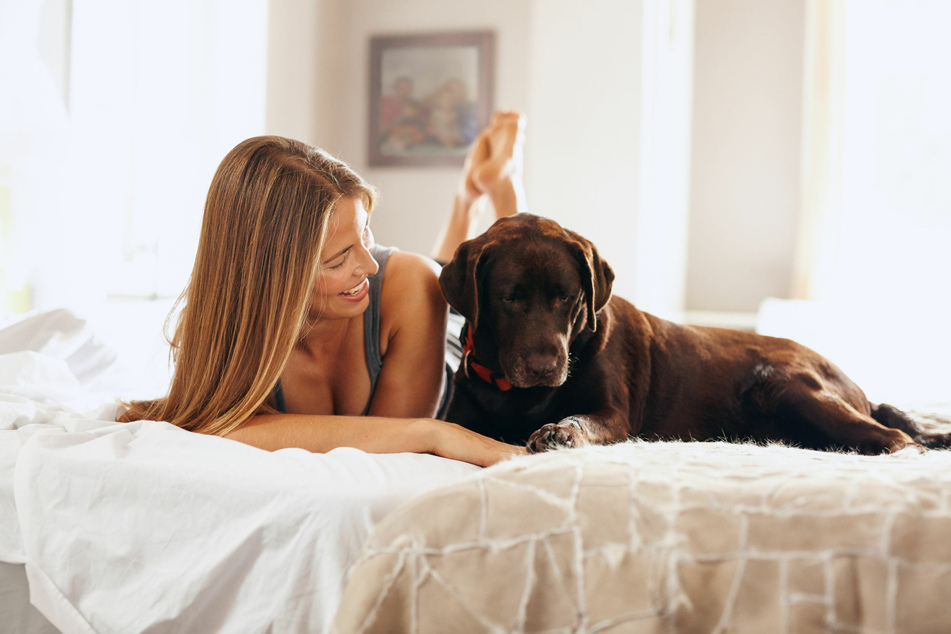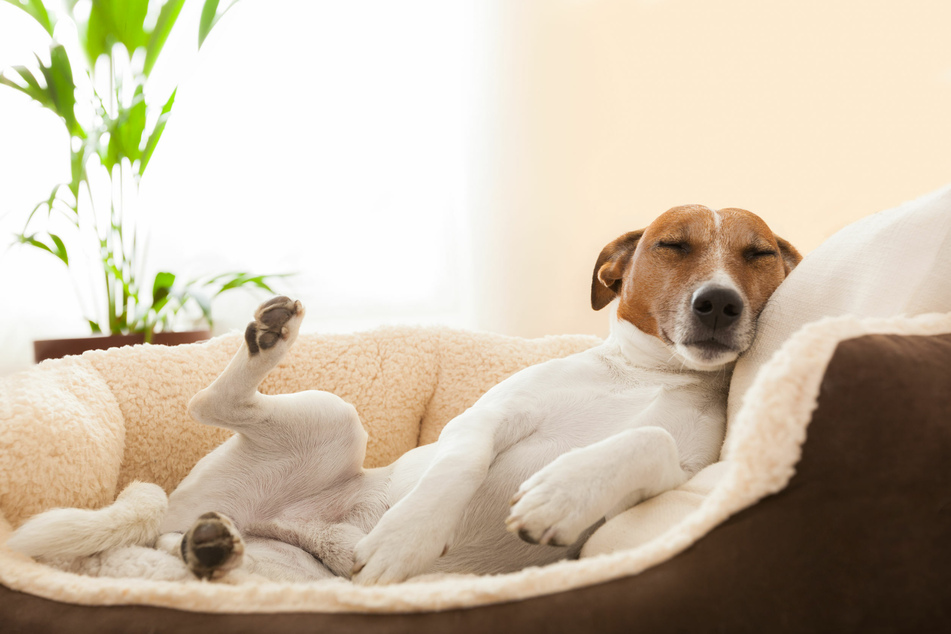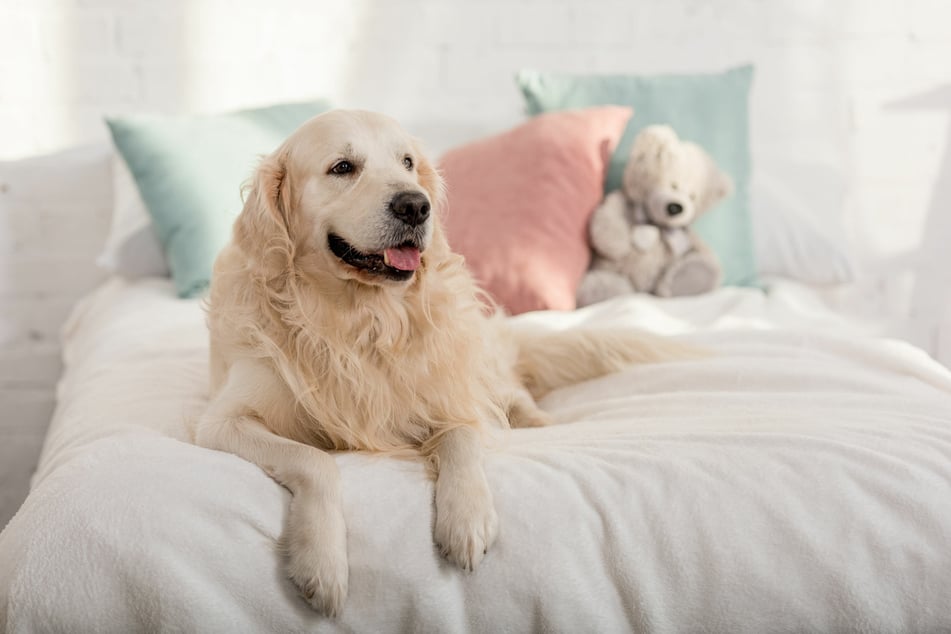Sleepy paws: Where your dog should catch some zzz's
Clear rules give dogs a sense of security, but how does that apply when it comes to where they sleep? What should dog owners keep in mind when making a bed for their pooch?
Where do dogs like to sleep?

If you asked your dog, where they would prefer to sleep, the answer would surely be the couch or your bed.
They want to sleep with their best friend, and that's usually their owner or another member of their pack.
Another thing to keep in mind is that dogs like to have a clear view of their surroundings.
So, if your dog can take a load off somewhere slightly elevated, they will have a good overview of what is happening in "their" territory.
Taking your dog's personality into account is important. If your dog is more of a scaredy-cat than a watch dog, then their bed should be something they can snuggle up in. Or if your four-legged friend loves to sprawl out, then you should make sure their bed is big enough for them to sleep all stretched out, like a starfish.
To have healthy and balanced dogs, sufficient sleep is paramount. They want to feel secure and at home, just like you. One of the best ways to accomplish this is with a fixed bed space for your pooch.
Five tips for finding the right place for your pooch's bed
Your dog's bed doesn't have to be super fancy, or designer. But you should ask your self the following questions about where you're considering putting your pooch's pillow:
- Is it quiet and safe?
- Does it meet your dog's needs?
- Is it in a busy area of the house?
- Is it drafty?
- Is it still close to the action?
- Does your dog need a separate day and night bed?
Making sure Fido's bed is just right

Different dog's have different needs. Some require soft beds and other's prefer the floor.
Dogs with long, dense fur, for example, can get hot, so make sure whatever material you choose for their bed isn't too heavy.
Generally, make sure where ever you put your dog's bed isn't right next to the radiator, or in a drafty area.
Older animals and sensitive breeds require softer beds. Old paws and joints need a little more cushion.
It is also important that older animals' beds are on the floor, so they don't have to jump down from anything. Those old joints aren't great for jumping from great heights.
Dogs are pack animals

As much as our four-legged friends loves to be in the thick of things, they also need a place to relax.
You don't have to send them to bed when they need a nap, but they should have a place to call their own.
In fact, if you send them to their beds, they might think they have done something wrong and assume they are being punished-
Keep in mind that canines love being with their family, and being around people.
Depending on the amount of space you have, it can be a good idea to set up two spaces for your dog to sleep: one for the day, for example in the living room close to family life, and one for the night, near or in your bedroom.
According to a Mayo Sleep Clinic study, some pet owners report that pets have a calming effect on their sleep. Dog owners might feel safer to know that they have their best buddy at their side, even when they are in dream land.
While many dog owners let the dog sleep in the bed with them, it is important to note that this can become a problem. Once the dog is in the bed, they will not want to share it. Which is why if you let them in to bed you will have to train them to make space, and here consistency is key.
It can become problematic to let your dog think that your bed is their territory, you may lose your authority. This is why it might be easier to train the dog to sleep in their own bed from day one.
But before you decide where your pooch's pillow should go, or if they should share your own, make sure you take their needs into account. Then everyone will be sure to catch the zzz's that they need to enjoy the day.
Cover photo: 123rf.com/ammentorp

